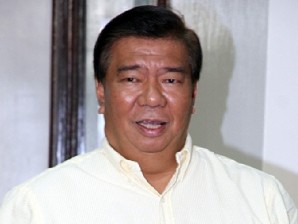It looks like President Benigno Aquino III will not have his way, after all. A projected P101.5-billion in what is being billed as “pork barrel” in the President’s proposed national budget will be cut by almost P5 billion.
Faced with a Malacañang attempt to impound funds of constitutional bodies, the chairman of the Senate committee on finance on Thursday agreed to respect the “fiscal autonomy” of those bodies and prevent the inclusion of their budgetary appropriations in the controversial miscellaneous personnel benefit fund (MPBF).
“We will respect fiscal autonomy, fiscal independence,” committee chairman Senator Franklin Drilon said at a press conference.
“We will adhere to the constitutional provision which grants fiscal autonomy to the constitutional bodies and, at the same time, provide for transparency in the budget so that we will know through a reporting system how the budget allocated to each agency is being spent.”
Drilon’s pronouncement came after weeks of wrangling between Malacañang and constitutional bodies over the wisdom—and legality—of including their budget for personnel services in the MPBF.
Through the MPBF, the Department of Budget and Management (DBM) would impound unspent appropriations for unfilled career positions in all the three branches of government and would not release them until a vacancy had been filled up.
Earlier this week, the House agreed to return control of the P2-B employment fund in the proposed 2012 budget.
Arroyo still wary
Senate President Juan Ponce Enrile earlier described the MPBF as a “huge pork barrel” for Malacañang.
Senator Joker Arroyo said that through the MPBF, the Palace was “hijacking the judiciary fund” for salaries amounting to P1.9 billion.
“There was really something wrong with that policy,” Enrile told reporters. “It’s nothing personal. I’m just trying to protect the interest of the Senate in the same way the Supreme Court is protecting the interest of the judiciary and the Constitution.”
Arroyo said he was still wary despite Drilon’s assurance that the budgets of constitutional bodies would now be left alone.
“There would still be no fiscal autonomy if preconditions would be placed on how constitutional bodies ought to spend their budget,” Arroyo said on the phone. “There has to be no condition.”
Transparency required
Drilon made it clear that despite their fiscal independence, Congress would “exact transparency” from other government agencies—including constitutional bodies—over budget spending.
He said: “We will respect the fiscal autonomy of the constitutional bodies but at the same time, we will exact transparency.”
Under the proposed 2012 national budget, the President, through the DBM, would control around P101 billion in MPBF, according to Arroyo. That amount would include P4.97 billion, which belongs to constitutional bodies, representing their unspent budgets for salary.
“It’s not correct to say that Malacañang is now yielding control over this P5 billion budget because that money is not theirs to begin with,” Arroyo said. “It belongs to constitutional bodies so they should have control over them.”
Asserting fiscal autonomy
Ombudsman Conchita Carpio-Morales and the heads of five other constitutional bodies earlier wrote Budget Secretary Florencio Abad reminding him it was “our right and responsibility to assert our fiscal autonomy as envisioned under the Constitution and as enunciated in various jurisprudence on the matter.”
The letter, dated August 15, was also signed by Supreme Court administrator Jose Midas Marquez and chairpersons Sixto Brillantes of the Commission on Elections, Loreta Ann Rosales of the Commission on Human Rights, Francisco Duque III of the Civil Service Commission and Grace Pulido-Tan of the Commission on Audit.
Drilon clarified that only the allocations for the constitutional bodies would be excluded from the MPBF. He said salaries for unfilled positions in the executive branch, including those in the police and the military, would still be impounded.
Arroyo said Malacañang would still be left with around P96 billion in MPBF.
If the Palace had its way, the DBM would have controlled the following amounts through the MPBF: Congress (P281.6 million), judiciary (P1.9 billion), Civil Service Commission (122.8 million), Commission on Audit (P1.8 billion), Commission on Elections (P162.3 million) and the Office of the Ombudsman (P567.7 million).
Detailed reports needed
Drilon on Thursday stressed that both chambers of Congress would still ensure transparency in spendings by requiring agencies to produce budget reports.
He noted that state universities and colleges (SUCs) had been instructed to submit a “detailed report” on their respective incomes from tuition, those generated from “commercial activities of properties,” and other sources.
“There are a lot of public funds which are in the banks of the SUCs,” he said. “You’ll be surprised at the amount of money in the coffers of the SUCs which are either idle or awaiting expenditure.”
Drilon added: “We will monitor them, how they utilize not only the subsidy from the budget but also the public funds in the form of tuition and other resources that they appropriate by virtue of the power we have granted to them by law.”
Originally posted at 06:18 pm | Thursday, October 06, 2011
